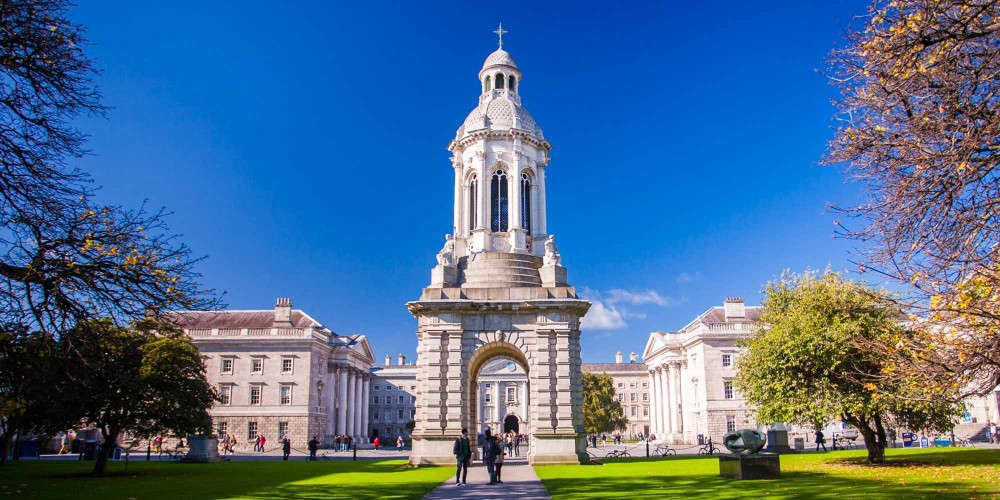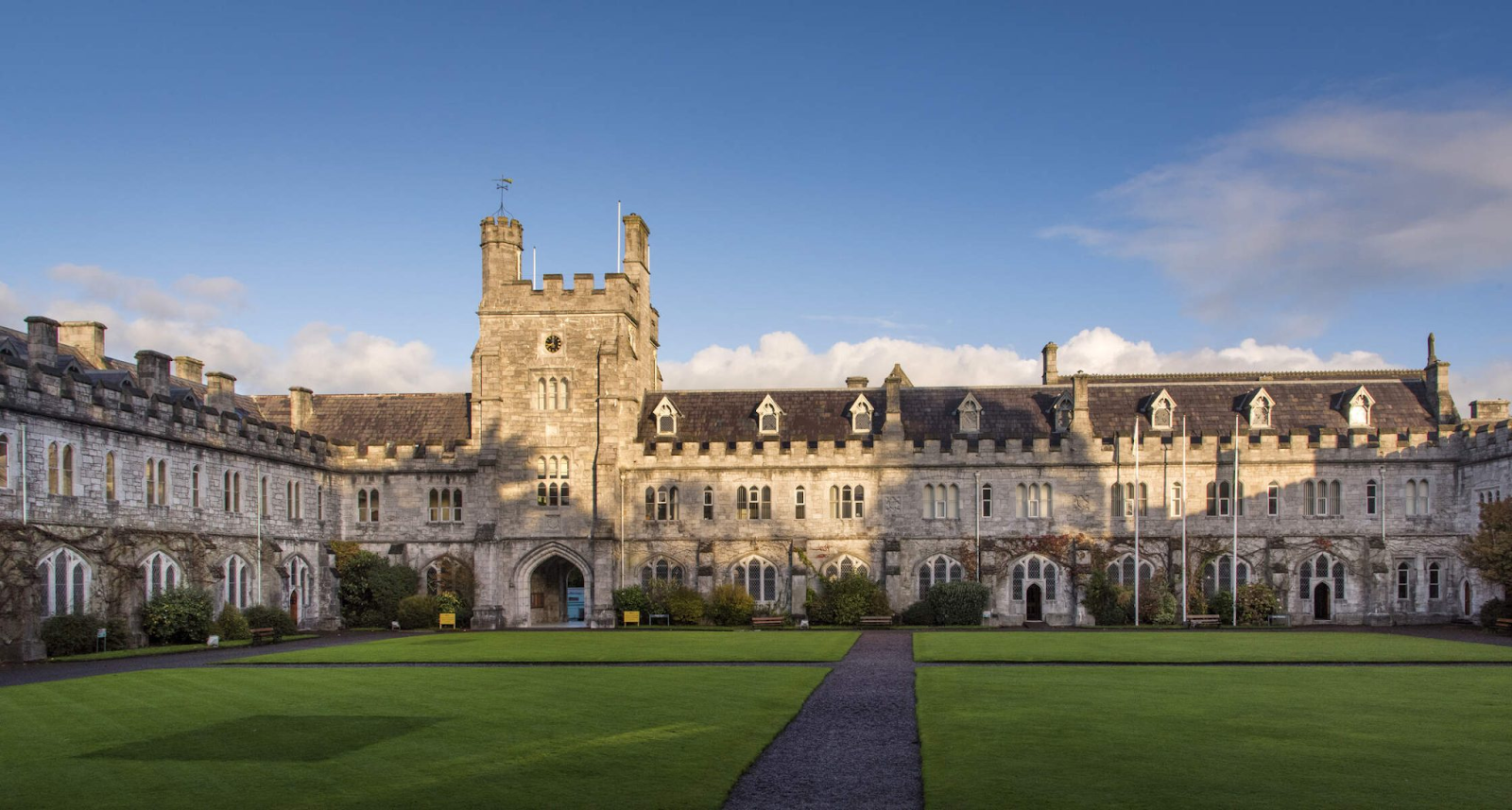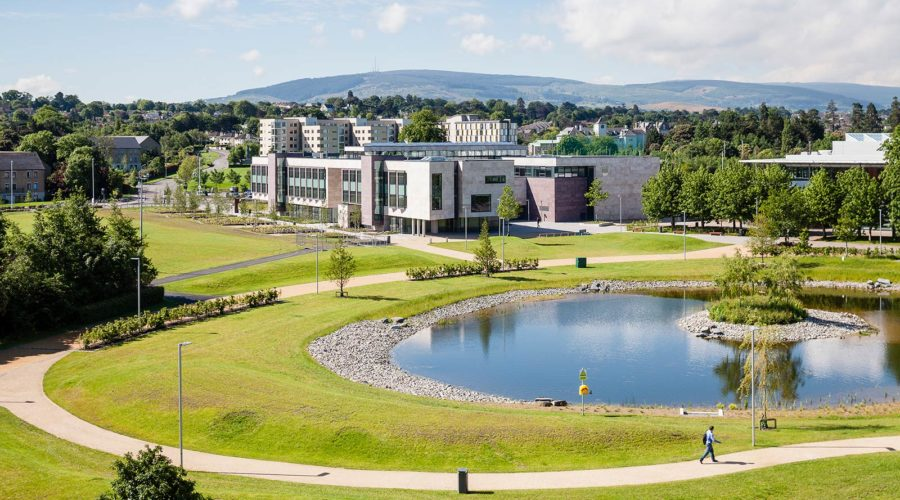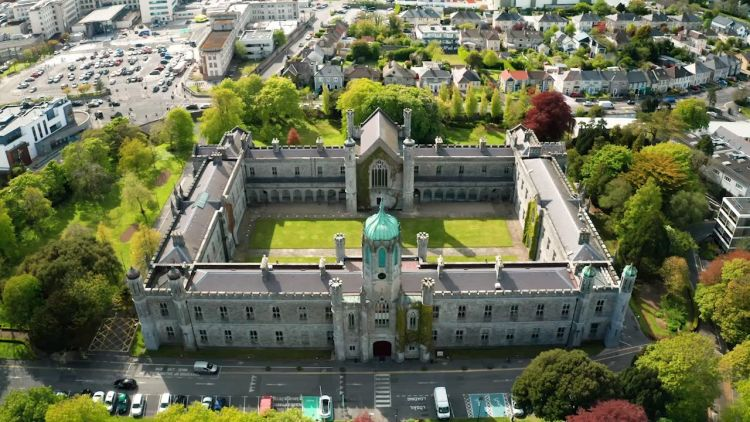Study Bsc Nursing in Ireland With Affordable & Globally
Recognized Universities!

Get Started on Your Journey to Study Abroad
Apply now for 2025 intake
BSc Nursing in Ireland
Ireland is on par with the ‘Big Four’ study abroad destinations, and it’s quickly becoming a top choice for healthcare aspirants, especially nursing students. A safe, English-speaking country with a vibrant Indian student community.
The reasons are hard to ignore:
- World-class universities offering high-quality education in health sciences.
- Two-year stay-back visa for international graduates, allowing you to gain work experience after your studies.
- 80–95% graduate employability rate, with global MNCs actively hiring.
Ireland is where education meets opportunity and where your BSc in Nursing can become the first step toward a global healthcare career.
Curious about how to get started?
Let’s dive into the top universities, admission steps, tuition fees, scholarships, and your future career options in Ireland.

TABLE OF CONTENTS
- Why Choose Ireland?
- BSc Nursing: Highlights
- Best BSc Nursing Universities in Ireland
- Entry Requirements (for International Students)
- Step-By-Step Admission Process
- BSc Nursing in Canada - Tuition Fees & Living Costs
- Career Opportunities - Salary After BSc Nursing in Ireland
- Other Important Factors for Students
- Quick Summary
- Cultural & Lifestyle Differences for Nursing Students in Ireland
- Comparison Table of Ireland vs Other Countries
- Visa Process for International Students
- Why Choose Educafic?
- Frequently Asked Questions
Why Choose Ireland?
The best thing about pursuing your bachelor's in Nursing from Ireland is that it offers Unique Specialization Options in the Bachelor’s Degree itself. Whether you’re into General Nursing, Mental Health, working with kids, or supporting people with disabilities, you can actually choose your focus from day one.
And after graduation?
You get up to two years on a post-study work visa (Stamp 1G) to live and work in Ireland. This gives you good time to find employment, register with the NMBI, and even start your pathway toward Permanent Residency.
World-Class Universities with Global Recognition:
Top Irish institutions like Trinity College Dublin, University College Dublin, and University of Galway are ranked globally for Nursing (TCD is #20 worldwide in QS 2025). You’ll graduate with a degree that’s respected across the UK, EU, Canada, and beyond.
High Demand for Nurses:
Ireland’s seriously short on nurses, which is great news if you’re graduating with a BSc in Nursing. Ireland has a graduate employability rate of 80–97% in the healthcare sector. Most international students land jobs quickly, especially in hospitals, elderly care, or even public health roles.
Easy Adjustment for International Students:
Ireland is the only English-speaking country left in the EU after Brexit, which makes adjusting way easier. And hey, with over 7,000 Indian students already here, you’ll feel right at home.
BSc Nursing: Highlights
| Course Programme | Bachelor of Science in Nursing (General, Psychiatric, Intellectual Disability, or Children's & General Integrated) |
|---|---|
| Duration | 4 years full-time |
| Medium of Instruction | English |
| Eligibility Criteria | 10+2 (with biology & chemistry), Academic Score - 60%-70% |
| Average Tuition Fees | €10,000 - €18,000 (₹1,003,300 - ₹1,805,940) |
| Average Cost of Living | €7,000 - €12,000 (₹702,310 - ₹1,203,960) |
| Top Universities | Trinity College Dublin, University College Dublin (UCD), University of Limerick, University College Cork (UCC), Dublin City University |
| Intakes | September |
| Clinical Placements | Include throughout the 4 years (approx. 36 weeks in total) |
| Language Requirement | IELTS score 6.5 or above (TOEFL equivalent) |
| Police and Medical clearance | At the time of clinical placement approval |
| HPAT or Interview | Not required for international students (only for EU/Irish students) |
Best BSc Nursing Universities in Ireland
Here are some of the best BSc Nursing universities in Ireland where you can apply:
Trinity College Dublin (TCD)
- QS Nursing Subject Ranking: #1 in Ireland, #5 in Europe, #26 globally (2024)
- University QS Overall (2025): #87 globally
- Duration: 4 years
- Tuition (Non‑EU UG): €24,330/year
- Acceptance Rate: 33%
- Clinical Placements & Employability: Integrated internships; strong reputation with “placement available” and high employability
- Scholarships: AQ Scholarships; Global Excellence PG Scholarships (€2k–€5k)

University College Cork (UCC)
- QS Subject Ranking: #2 in Ireland, #32 globally
- QS Overall: #292 globally
- Duration: 4 years
- Tuition (Non‑EU UG): €23,400/year
- Acceptance Rate: 30%
- Support Services: Generous 20% fee reduction for first-class honours via SEFS
- Extras: Named Irish University of the Year multiple times; strong digital infrastructure

University College Dublin (UCD)
- QS Subject Ranking: #3 in Ireland, 51–100 globally
- QS Overall: #126 globally (2025)
- Duration: 4 years
- Tuition (Non‑EU UG): €29,100/year
- Acceptance Rate: 25%
- Scholarships: Global Excellence Scholarship (up to 50% tuition waiver)

RCSI (Royal College of Surgeons in Ireland)
- THE Nursing/Health Ranking: #2 in Ireland, 176–200 globally
- QS Overall: 801–1000
- Duration: 4 years
- Tuition (Non‑EU UG): €25,000–€32,000
- Acceptance Rate: 15%
- Notes: Known for high specialist training & international intake

University of Galway (NUIG)
- THE Ranking: #5 in Ireland, 251–300 globally
- QS Subject Ranking: #4 in Ireland, 51–100 globally
- Duration: 4 years
- Tuition (Non‑EU UG): €26,500/year
- Acceptance Rate: 35%
- Scholarships: Hardiman Scholarship (€22,000 stipend + fee waiver)
- Employment: Paid 36-week internship in year 4

University of Limerick (UL)
- QS Subject Ranking: #5 in Ireland, 51–100 globally
- QS Overall: #426 globally
- Duration: 4 years
- Tuition (Non‑EU UG): €26,900/year
- Acceptance Rate: 35%
- Employability: 100% employability within 12 months; mandatory 9-month placement often leads to job offers

Dublin City University (DCU)
- ARWU Subject Ranking: #4 in Ireland, 201–300 globally
- QS Overall: #436 globally
- Duration: 4 years
- Tuition (Non‑EU UG): €15,000/year
- Acceptance Rate: 45%
- Scholarships: DCU International Merit Scholarships

Entry Requirements (for International Students)
- Completed 12th grade: With Biology and Chemistry.
- Academic score: Minimum 60–70% or more.
- Language Proficiency: IELTS 6.5 with no band below 6.0 or TOEFL equivalent.
- HPAT or Interview: Not required for international students (only for Irish/EU applicants).
- Medical & Police clearance: Required for clinical placement approval.
Step-By-Step Admission Process
Step 1: Choose Your Course and University
Decide the specific BSc Nursing specialisation: General, Mental Health, Intellectual Disability, Children’s & General Integrated.
Step 2: Check Entry Requirements
Each university has its own criteria. For BSc Nursing, the standard requirements include:
- Academic: 12th-grade completion with Biology, Chemistry, and English with an academic score of 60–70% aggregate (depending on the university).
- English Proficiency: IELTS: Overall 6.5 (no band below 6.0) or TOEFL iBT: 88+, or PTE: 63+
- Additional: Valid passport, Medical clearance and immunisation records, Police clearance (for clinical placement), May require an interview (rare for international students)
Step 3: Prepare and Submit Application
A. Apply through university portal
Most applications are open from November to May (varies by university).
B. Documents Needed:
- Academic transcripts & certificates
- Proof of English proficiency
- Statement of Purpose (SOP) / Personal Statement
- Letter(s) of Recommendation
- Passport scan
- CV (if required)
Step 4: Pay the Application Fee
Most universities charge an application fee of €35–€50 per course. Some waive the fee for certain countries or during promotional periods.
Step 5: Wait for the Offer Letter
Response time: Usually 4–8 weeks after submission.
Two types of offers:
- Conditional Offer (if pending results)
- Unconditional Offer (if all criteria met)
Step 6: Accept the Offer
Confirm your place by paying the deposit fee (often €1,000–€3,000). This secures your admission and lets you start the visa process.
Step 7: Apply for Scholarships (Optional)
Apply early! Many close by April–June.
Scholarships for international students include:
- Government of Ireland International Education Scholarship (GoI-IES)
- University-specific merit scholarships (e.g., €2,000–€5,000 at UCD, UCC, NUIG)
- Country-specific grants (India-Ireland, Erasmus+, etc.)
Step 9: Arrange Accommodation and Travel
- Book university or private accommodation
- Book flight tickets after visa approval
- Carry original documents, offer letter, visa, and proof of payment when travelling
Step 10: Register & Begin Your Course
Land in Ireland at least 1–2 weeks before classes start (usually September).
Attend orientation, register at the university, and get your Irish Residence Permit (IRP) within 90 days of arrival.
BSc Nursing in Canada - Tuition Fees & Living Costs
| Type of Expense | Approximate Cost (Per Year) |
|---|---|
| Tuition Fee | €10,000 – €18,000 |
| Living Expenses | €7,000 – €12,000 |
| Health Insurance | €500 – €700 |
| Books & Materials | €300 – €600 |
Career Opportunities - Salary After BSc Nursing in Ireland
1. NMBI Registration
Once your BSc in Nursing is completed, whether it’s General, Mental Health, or something more specialized, you’ll need to register with the NMBI (that’s Ireland’s official nursing board). It’s what makes things official so you can start working.
- Registration cost: Around €145
- Renewal: €100 each year
- Timeline: Usually takes 4–6 weeks after you finish your degree
Once you’re registered, you’re officially a Registered Nurse (RN) and yes, you can legally start working in Ireland.
2. Job Opportunities for Nursing Graduates in Ireland
There’s a real demand for nurses right now. Irish hospitals, elder care homes, and even community clinics are hiring constantly. Staff shortages, an aging population, and nurses moving abroad all add up to more job openings than ever. So, if you’re qualified and motivated, Ireland is waiting for you.
Popular Work Settings:
- Public hospitals (HSE)
- Private hospitals (e.g., Bon Secours, Mater Private)
- Community health centers
- Elderly care homes
- Mental health facilities
- Disability support services
- Home care & outreach nursing
Common Job Roles After BSc Nursing:
| Job Title | Avg. Annual Salary (Gross) | Entry Level | Experienced |
|---|---|---|---|
| Staff Nurse (General) | €35,000 – €50,000 | €35K – €40K | €45K – €55K |
| Mental Health Nurse | €37,000 – €55,000 | €37K | €50K+ |
| Children’s Nurse | €36,000 – €52,000 | €36K | €50K+ |
| Nurse in Aged Care/Homecare | €34,000 – €48,000 | €34K | €45K |
| Agency/Locum Nurse | €20–35/hour | – | €45K–€60K (full-time equiv.) |
| Community/Public Health Nurse | €42,000 – €60,000 | ~€42K | €55K–€65K |
3. Stay Back and Work Visa Options
Critical Skills Employment Permit (CSEP):
- Eligibility: Job offer with salary ≥ €32,000/year from a registered Irish employer.
- Validity: 2 years, renewable
- PR Pathway: Eligible to apply for permanent residency after 5 years.
Third Level Graduate Scheme: After graduation, you can apply for a 1–2 year stay-back visa (Stamp 1G).
- Work full-time (40 hrs/week) and seek a permanent job or sponsorship.
- Tip: Most hospitals are familiar with hiring international nurses and can assist with CSEP paperwork.
4. Postgraduate Study Options
If you want to specialise or enhance your qualifications, Ireland offers several postgraduate paths:
| Course | Duration | Outcome |
|---|---|---|
| MSc in Nursing (Advanced Practice) | 1–2 years | Eligibility for clinical leadership or education |
| Postgraduate Diploma in Nurse Prescribing | 1 year | Gain authority to prescribe medications |
| MSc in Mental Health, Palliative Care, Public Health | 1–2 years | Career move into niche areas |
| MSc Nursing (Research / Education) | 1–2 years | Move into academic or teaching roles |
5. Career Growth & Long-Term Benefits
Career Pathway:
- Staff Nurse
- Clinical Nurse Manager (CNM)
- Advanced Nurse Practitioner (ANP)
- Director of Nursing
- Healthcare Educator / Lecturer
In-Demand Nursing Specialisations:
- Mental Health
- Children’s Nursing
- Palliative & Oncology
- Intellectual Disability
- Operating Theatre Nursing
- ICU/CCU and Emergency Care
Other Important Factors for Students
| Factor | Details |
|---|---|
| Working Hours | 37.5 hrs/week (full-time), shift-based |
| Part-Time Options | Yes; common in home/community settings |
| Unionised Roles | Public hospital nurses are often part of INMO union (negotiates better pay & work conditions) |
| Cost of Living | €800–1,200/month in most cities |
| Tax Benefits | First €16,500 is tax-free for single workers |
| Work-Life Balance | Ireland ranks high on work-life balance in nursing jobs |
Quick Summary
| Feature | Details |
|---|---|
| Job Titles | Staff Nurse, Mental Health Nurse, Paediatric Nurse, etc. |
| Starting Salary | €34K–€40K/year (₹30–₹35L) |
| Visa After Study | Stamp 1G (2 years), then Critical Skills Visa |
| Further Studies | MSc in Nursing, Advanced Practice, Prescribing |
| Career Growth | Clinical Nurse Manager → ANP → Director of Nursing |
| Job Demand | Very high, especially in elderly & mental health care |
Cultural & Lifestyle Differences for Nursing Students in Ireland
Living Style & Independence
You’ll probably be doing your own cooking, cleaning, and keeping track of bills. Especially if you’re living in shared student housing or budget-friendly hostels.
Rent in Dublin can be high (€700–€1,000/month), but cities like Galway or Cork are more affordable (€500–€800/month).
Time & Punctuality
Time is taken seriously, being late to classes or placements is not acceptable. Clinical placements expect you to arrive early, follow routines, and be highly disciplined.
Note: So if you’re used to a more flexible culture around punctuality, this might take a bit of adjusting.
Communication Style
Irish people are generous and polite, they equally also value direct, clear communication. In classrooms or clinical settings, you are open to ask questions, share ideas, and express your concerns openly.
Healthcare Culture & Work Ethic
In Irish hospitals, nursing isn’t just about following instructions — you’re expected to think for yourself and advocate for your patients.
Nurses are seen as professionals, not just assistants. You’re expected to think critically, not just follow instructions.
Clinical placements may include elderly care, mental health wards, or palliative care, which may be culturally new to some students.
Academic Culture
In your BSc nursing, you’ll be expected to do your own research, think critically, and sometimes challenge what’s being taught. It’s not all memorization here.
Social Life & Friendships
Most students build a diverse group of friends, Irish locals, other internationals, and even people from home. Since Ireland’s small, it’s easy to meet people even outside your campus.
Weather & Seasonal Change
October to March, Expect chilly, rainy weather. It’s not freezing, but it’s damp, grey, and a little gloomy.
Work-Study Balance
You’re allowed to work up to 20 hours a week during the semester and full-time during breaks.
Cultural Inclusivity & Support
More and more Irish universities are stepping up when it comes to diversity and support for international students. You’ll find cultural societies, student advisors, and even peer groups to help you settle in — especially as an Indian student. You won’t be alone here.
Support for international students includes:
- Mental health services
- Career counselling
- Faith/prayer rooms
- International student welcome events
Ireland is safe, friendly, and open, but like any foreign country, adjustment takes time and emotional resilience.
Comparison Table of Ireland vs Other Countries
| Factor | Ireland | UK | Canada | Australia | USA |
|---|---|---|---|---|---|
| Course Duration | 4 years | 3 years | 4 years | 3–4 years | 4 years |
| Tuition Fees (Annual) | €10,000–€25,000(₹9–22 lakhs) | £15,000–£22,000(₹16–23 lakhs) | CAD 18,000–30,000(₹11–18 lakhs) | AUD 28,000–45,000(₹15–25 lakhs) | USD 25,000–40,000(₹20–33 lakhs) |
| Part-Time Work (During Study) | 20 hrs/week | 20 hrs/week | 20 hrs/week | 20 hrs/week | 20 hrs/week |
| Post-Study Work Visa | 2 years (Stamp 1G) | 2 years (Graduate Route) | Up to 3 years (PGWP) | 2–4 years (485 Visa) | 1–3 years (OPT) |
| Permanent Residency (PR) Path | After 5 years on Critical Skills Permit | After 5 years of work | Easy via PR streams (Express Entry) | After 2–3 years of skilled work | Complex (Green Card lottery/work sponsorship) |
| Avg Starting Salary (Nurse) | €35K–€40K(₹30–35L) | £26K–£30K(₹27–32L) | CAD 50K–65K(₹30–39L) | AUD 60K–75K(₹33–42L) | USD 60K–80K(₹50–66L) |
| Visa Success Rate | High (90%+) | Moderate to High | High | Moderate | Moderate |
| Language Requirement | IELTS 6.5 | IELTS 6.5 | IELTS 6.5/TOEFL | IELTS 7.0 (some unis) | TOEFL/IELTS (high scores) |
| Nurse Demand | High (acute shortages) | High (NHS demand) | Very High | High | High (but licensing complex) |
| Living Costs (monthly) | €800–1,200 | £900–1,200 | CAD 900–1,500 | AUD 1,200–1,800 | USD 1,500–2,000 |
| Work Culture | Friendly, nurse-led care | Fast-paced, NHS-heavy | Supportive, multicultural | High-tech hospitals, diverse | Intense, documentation-heavy |
| Healthcare Registration | NMBI | NMC | NCLEX + Provincial Boards | AHPRA | NCLEX + State Boards |
| PR/Immigration Friendliness | Good | Moderate | Excellent | Good | Competitive |
| Cultural Diversity | High | High | Very High | Very High | High |
| Specialisation Options in BSc Nursing | Choose from Year 1 or 2: General, Mental Health, Children’s, Intellectual Disability | Apply directly to specialised tracks (Adult, Child, Mental Health, LD Nursing) | General BSc Nursing only; specialisation postgrad | General nursing at UG level; specialisation via postgrad or clinical | General BSN; advanced roles only after RN license & PG study |
Visa Process for International Students
Apply for Irish Student Visa
Apply for a Type D Study Visa at least 6–8 weeks before travel.
Documents Required:
- Offer letter (unconditional)
- Proof of tuition fee payment (full or partial)
- Proof of funds (approx. €10,000 for 1 year in Irish bank account or equivalent)
- Health insurance policy
- Passport
- Visa application form & fee (~€60–€100)
- English language proof
- Accommodation details (if possible)
Why Choose Educafic?
10+ Years of Trusted Experience
We’ve been helping students study abroad for over a decade, and our success stories speak for themselves.
Tailored University Shortlisting
We match you with the best universities based on your academic background, goals, and financial plan.
Expert, Personalised Counselling
Our experienced advisors offer genuine, one-on-one guidance to help you make smart, confident choices.
End-to-End Application & Scholarship Support
From preparing your application to unlocking scholarship opportunities, we’re by your side at every step.
Visa Guidance with Proven Success Rates
With strong documentation support and mock interviews, our students secure visas smoothly and on time.
Direct Tie-Ups with Top Global Universities
We’re official partners with leading institutions in Australia and beyond, giving you exclusive access and faster admissions.
Powerful SOPs & Interview Coaching
We help you craft impactful SOPs and prep for university or visa interviews that truly stand out.
Transparent Process, No Hidden Costs
No fine print, no surprises, just honest advice and clear support from start to finish.
Frequently Asked Questions (FAQs)
How long is the BSc Nursing program in Ireland?
What specialisations can I choose in BSc Nursing?
Can international students apply for BSc Nursing in Ireland?
What are the English language requirements?
How much does BSc Nursing cost in Ireland?
Can I work while studying?
Is Ireland safe for Indian students?
Will I get job opportunities after graduation?
Do I get a post-study work visa?
What is the salary of a nurse in Ireland after BSc?
For any further queries, reach out to our experts at Educafic for FREE guidance and let us help you fulfil your dream of becoming a doctor in Australia.
TABLE OF CONTENTS
- Why Choose Ireland?
- BSc Nursing: Highlights
- Best BSc Nursing Universities in Ireland
- Entry Requirements (for International Students)
- Step-By-Step Admission Process
- BSc Nursing in Canada - Tuition Fees & Living Costs
- Career Opportunities - Salary After BSc Nursing in Ireland
- Other Important Factors for Students
- Quick Summary
- Cultural & Lifestyle Differences for Nursing Students in Ireland
- Comparison Table of Ireland vs Other Countries
- Visa Process for International Students
- Why Choose Educafic?
- Frequently Asked Questions
